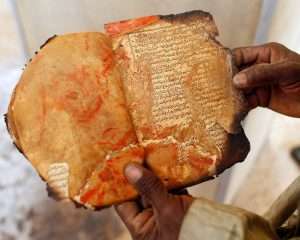Sudan: army intensifies enlistment amid paramilitary escalation

The Sudanese military has intensified its enlistment drive following the major strategic loss of its last stronghold in the western Darfur region, according to The National on November 14th.
The campaign is laced with Islamist rhetoric and influence that targets impoverished civilians. It also uses coercive tactics to boost recruitment rates, such as hate speech and accusations of treason against any men who refuse to join the fight.
The military has been at war with the paramilitary Rapid Support Forces (RSF) since April 2023 when a power struggle turned violent. After the latter seized control of the strategically crucial city of El-Fasher by laying siege to it for roughly 18 months, the military was left licking its wounds.
In reaction to such a heavy defeat, the scope of the military’s recruitment drive has been expanded considerably. The undertaking is now channelled through a commission spearheaded by an ex-army general.

Community leaders and figures of authority in military-controlled areas are also contributing to the effort to attain more fighters. Provincial governors have recently replaced their civilian attire with combat fatigues.
Imams routinely deliver mosque sermons wherein they preach the virtues of waging war against the RSF, increasingly framing the conflict as a holy war conducted by the religiously righteous against heretics and sinners.
The spike in jihadist rhetoric is unsurprising considering the abundance of Islamist elements scattered throughout military forces. In August, military chief Abdel Fattah al-Burhan placed several allied jihadist militias under his direct authority in order to enhance tactical coordination on the battlefield.
However, war-weary civilians like Mohamed Abdullah, who fled from Khartoum to seek safety in the northern city of Halfa, have quickly grown to resent recruiters who seek to portray political objectives as religious duty.
“The army’s narrative has been hijacked by Islamists loyal to Al Bashir [Sudan’s ex-dictator] and whose political interests lie in the continuation of the war,” he stated. “I reject mobilisation and the continuation of the war. I want to see peace.”
The loss of El-Fasher is indicative of a shift in momentum on the ground at the expense of the military, which only recently re-captured the nation’s capital of Khartoum in what was a major victory in the conflict.
Further territorial losses to the RSF are now expected to be inflicted in the Kordofan region. Three main cities, El Obeid, Babanoussa, and El Diling, are now under siege by the emboldened paramilitary group.
Kordofan is comprised of three states that act as a buffer between RSF held territories in the west and the military-dominated east. Eyewitnesses informed Reuters of an influx of troop deployments by both warring parties in the region, seemingly coalescing around the North Kordofan state capital of El Obeid.
The mutual military build-ups paint international mediation efforts as nothing more than futile. In early November, the RSF agreed to a humanitarian truce that stipulated the temporary cessation of hostilities, a clause it has openly defied.
The military seems just as unlikely to accept any political settlement in the near future, proposing that the only scenario in which it would do so is if the RSF withdraws from civilian areas across the country and immediately disarms.
The eruption of a new key battlefront in this conflict is seemingly on the horizon, and with both sides equally committed to a total and unconditional victory, an end to Sudan’s civil war does not seem close.
The National, Maghrebi.org, Reuters
Want to chase the pulse of North Africa?
Subscribe to receive our FREE weekly PDF magazine












